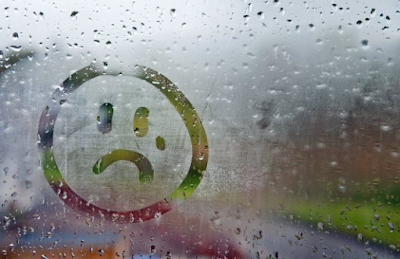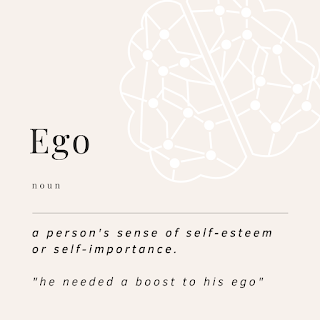GIVE YOURSELF THE GIFT OF SOBRIETY THIS CHRISTMAS
Another year has flown by, and it’s that time of year again! Christmas
can be challenging at the best of times but being in recovery doesn’t have to suck
the joy out of your seasonal celebrations.
Even though I
was firm in my decision not to drink and had 6 months solid sobriety under my
belt, my first sober Christmas still required some preparation and navigation. And as I moved
through the festive period, there were some unexpected things that cropped up.
Interestingly, the main issue I had was that my family were more awkward about my sobriety than me! Every time my stepdad mentioned, or had a drink, my mum would apologise on his behalf. I could tell she wanted a glass of wine, but she was holding off to show solidarity. While this was a very sweet and appreciated gesture, I had to remind her on several occasions that I was happy with my decision not to drink and that she could relax and enjoy herself and her wine. I was quite content with my sparkling water, thank you very much!
Even if you are secure
in your recovery, Christmas can be a difficult time to be sober. You only have to walk into any supermarket from November onwards and you are surrounded by
booze. Don’t you just love how they line the entrances ceiling-high with
every type of alcoholic beverage you can imagine? Yeah, me too.
It is a bit of a minefield, but never fear, staying sober (and hopefully serene) is entirely possible. Here are some tips that have helped me survive the Holidays with my sobriety and sanity intact.
DECIDE YOU ARE NOT GOING TO DRINK
Do yourself a kindness
and stop bargaining with yourself. I can confirm it is exhausting and never
ends well. If having a drink is even slightly on the table, there is a good
chance that at some point you will say ‘Oh, go on then, It’s Christmas after
all’, and pick up that first drink. You don’t need me to tell you it will never
be just one drink.
A friendly reminder
- It will never be just one drink.
One of the best
bits of advice I was given was to take my Step 1 with me everywhere I go, and
to never forget that I am powerless over alcohol and that if I drink my
life will become unmanageable. My addiction may try to trick me into
thinking otherwise, but I know that I don’t have to listen to the devil on my
shoulder.
So, make the
decision for yourself that you deserve to stay sober this Christmas, and
that not drinking is something that you have chosen for yourself, not
for anyone else. Take a deep breath and stand firmly by your decision. Trust
me, this is a lot less tiring and will allow you to be present rather than
obsessing about whether or not you should have a drink.
BE ASSERTIVE
You may prefer not to disclose that you are in recovery and that is completely ok. It is ok to simply say no. Should anyone take issue with this, then this is a ‘them’ problem and in no way yours. I always remind myself of the phrase ‘What other people think of you is none your business’ and move on with my day.
Here are some responses you can use if you need some inspiration:
I have a rule that I follow when it comes to attending events – if my response isn’t a hard yes, then it’s a hard no. And I always give myself permission to change my mind closer to the time if my mood changes. No one is going to miss me that much and I will always choose my sobriety and an early night over a party that I’m not actually that fussed about. For me, sobriety has given me the empowerment and confidence to be able to say no to things without apology.
PLAN (AND BRING) YOUR DRINKS
No one needs to spend their Christmas making do with variations on flat fizzy drinks and lukewarm juice! Treat yourself to some fancy mocktail recipes and have fun with it. Here are some recipes to get you started.
If you are self-conscious about not drinking, a mocktail or sparkling water with ice won’t stand out - only you will know your drink is sans booze.
I always make sure I have a selection of herbal teas with me, as well as plenty of sparkling water and ice.
DO YOUR WORK
As tempting as it might be to take your foot off the gas for a few days, it is imperative to maintain your recovery routine. This means continuing to do the things that keep you sober as if it was any other day. I would argue that it is even more important to be vigilant over the Christmas period due to the increased exposure, and social pressure to drink.
Everyone’s recovery is different so make a note of what your recovery routine priorities are and make time for them. Literally, write a list and keep it somewhere visible. Stick it to your mirror and read it every morning as a reminder of what you need to do to stay sober.
As an example, I need time to myself in the morning for quiet reflection and meditation (and coffee), as well as quiet wind down time in the evenings for prayer, gratitude and reading. I also know that if I am in an extended social situation (such as visiting family for the day) I will need to be able to step away and take time for myself throughout the day otherwise I get overwhelmed. I also attend my meetings as normal. Recovery doesn’t take a back seat in my life just because it is Christmas.

It might be tempting to throw caution to the wind and let your recovery work slide over the Festive period, but complacency can lead to relapse. Treat it as any other day and do the work. You will thank yourself for it.
KNOW YOUR TRIGGERS
Cravings can strike
at any time, including when we least expect them. The first thing to be aware
of is your known triggers for drinking. This could be certain people,
situations places or even more obscure things like foods and smells. As with your recovery tools, make a list of these
triggers and plan ahead to identify and take measures to avoid them as much as
possible.
Unfortunately,
it is unlikely that we can completely avoid potential triggers like family
gatherings or being around alcohol, but we can be prepared for them and use our
recovery tools to get through any tricky moments. Take a deep breath, pause,
and ask yourself what you need in the moment. The good news is that cravings
always pass.
I am a big fan of the HALT acronym and almost always find that if I am struggling, I am a combination of hungry, angry, lonely, or tired. I am most likely to feel triggered if I am tired, which is why making time for myself throughout the day and getting enough sleep is super important. If this means call it a night and going to bed a good couple of hours before my family, then so be it.
Forget FOMO, I prefer JOMO (joy of missing out).
STAY CONNECTED WITH YOUR SUPPORT NETWORK
Calling someone if you need support is helping them as much as you. I know from my own experience that if a fellow in recovery calls me for support, it helps me stay sober and I am always grateful for the opportunity to be there for them.
AND FINALLY, BE KIND TO YOURSELF
Being in recovery can feel isolating, especially if you are surrounded by drinking and the social pressure to do so yourself.
Sometimes,
despite our best efforts and intentions, relapse happens. It is important to
acknowledge that although it is devastating at the time, all is not lost. Your hard work up to that point has not been wasted, and it is entirely possible
to brush yourself off and get back on track. Recovery is rarely a linear
process but is an ongoing journey in which we can learn from mistakes and hopefully move
onwards and upwards.
Never let the self-shame of relapse hold you back from trying again – there is no shame in
relapsing and you always deserve another chance. No one is judging anywhere nearly as harshly as you are judging yourself.
As ever, the
UKAT Alumni team are available over the Christmas period on 0203 949 6585, and you can find many
other support resources here.





Super blog!! Thank you.
ReplyDeleteThank you Simon! Wishing you a very Merry Christmas :)
Delete